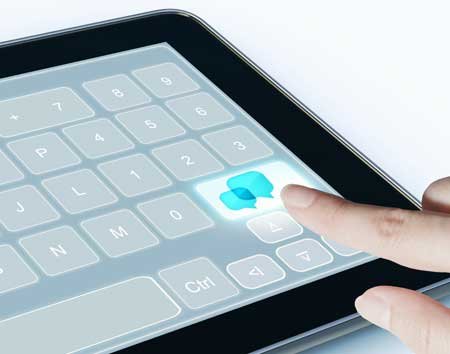COULD DIGITAL ELECTIONS REMOVE THE NEED FOR MPS?
Published by Gbaf News
Posted on May 28, 2015
5 min readLast updated: January 22, 2026

Published by Gbaf News
Posted on May 28, 2015
5 min readLast updated: January 22, 2026

Written by Andrew Hull, Strategy Director, Pocket App
Today, mobile is by definition a disruptive technology. 80% of UK adults now own a smartphone and the average user has 42 apps installed, using 10 of these apps every single day. Mobile has become fully integrated into all sectors from retail to manufacturing through to B2B enterprise applications, except for politics.
Politics is the only sector I can think of that doesn’t really harness or make use of mobile. Admittedly the public sector has some great initiatives such as the Digital by Default strategy which advocates moving all government services online by 2020. That said, it is still only the Executive that is making inroads into digital. The legislative part of our government, i.e. the House of Commons and our MPs, haven’t even started to introduce digital polling booths for example, which are already in use and rapidly gaining traction in the US and around the world.
I recently read research that stated that by the time of the next election over 60% of UK adults will be regularly making bank transfers on their mobile phones. In my opinion, if we can trust our financial transactions to mobile security, why can we not trust our voting procedures as well?
I understand that security is of the upmost importance to the voting process. Any report of hacking or fraud could have serious repercussions on the way our country is run. However, if we can develop secure banking applications that the majority of the population feels comfortable using, then I’m confident we could develop the technology to support a digital voting process.
When I discuss my views on this people inevitably ask ‘what about that 20% of the population that don’t own a smartphone?’ I’m not suggesting that by 2020 the UK will be capable of running a mobile only, fully online election process, but we need to start making serious steps in that direction. We can now register to vote online so it would be feasible to tie your vote into an email address. Email addresses are free to set up and for the small percentage of the population that doesn’t have internet access there are libraries and cafes across the country with free Wi-Fi; certainly more than there are polling stations.
The issue is we must begin developing these systems now if we want them to be ready by 2020. As I run an app development business I know that it should take no more than two years at most to produce a fully functioning prototype. However, it will also require rigorous testing at local council elections before it can be implemented for something as complex and important as a General Election.
Alongside local elections I see a voting app having wide-spread potential uses in the legislative process. For example, once the infrastructure is in place it could be used for the promised referendum on the UK’s EU membership in 2017. With 60% of those who didn’t vote saying they would if they could vote online we could see a much larger percentage of the UK population getting involved with the referendum, providing a more accurate representation of whether we should stay or leave the EU.
This is before we even consider the cost saving elements of having a voting infrastructure that doesn’t require staff in every polling centre, physical print resource and hours of hand counting ballot papers. The 2010 election cost £113 million in total with £28 million attributed to printing alone. If the service could be extended to local councils as well savings could run into the billions.
I have been thinking recently that the long-term impact of the move to digital could completely shake up the UK’s political system. If the Conservatives bring in a secure mobile infrastructure that can easily be updated it would make referendums easier and cheaper to implement and much more likely to be offered. Over the course of 50 years it wouldn’t surprise me to see the government allowing citizens to offer their opinions on all aspects of governance.
Unfortunately this does then raise the question ‘why do we need MPs?’ As our elected representatives, MPs are supposed to stand for their constituents’ interests in the House of Commons. A population that can directly represent itself through digital platforms has no need for an elected representative. In a digital future could they become irrelevant? Admittedly, what I am talking about is still in the distant future, nothing so drastic will happen immediately. It does however show the difference that an online voting platform could make to the UK election process.
While there are still plenty of hurdles to overcome with online voting, it’s important that we start in earnest now. Countries around the world are embracing the digital revolution and it’s time for the UK to get involved before we are left behind. We have a chance to be trailblazers on a global scale but for that to happen we have to put the wheels in motion, today.
By Andrew Hull, Strategy Director of Pocket App
Explore more articles in the Technology category











